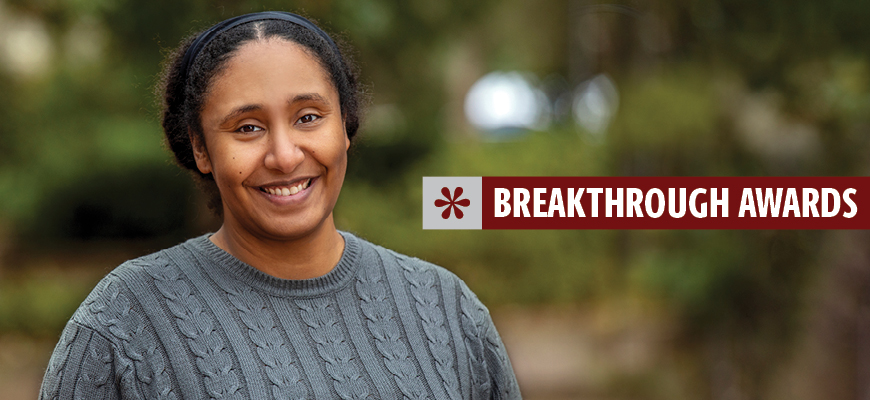
Breakthrough Star: Nicole Maskiell
History professor’s research seeks to tell the stories of oppressed people
Posted on: July 6, 2021; Updated on: July 6, 2021
By Chris Horn, chorn@mailbox.sc.edu, 803-777-3687
Nicole Maskiell grew up mesmerized by stories about her family, including the tale of her grandmother’s grandmother who escaped from enslavement in the South with an infant in her arms.
That no doubt whetted her appetite for history, but it was an early 18th century gravestone of a young Black girl, buried near Harvard Yard — which Maskiell happened upon while she was a Harvard undergraduate — that set her on the path to becoming an historian. Uncovering the facts about Cicely, who died in 1714 during a measles outbreak piqued Maskiell’s curiosity about the lives of oppressed people and their oppressors.
Now an assistant professor of history at the University of South Carolina, Maskiell is uncovering obscure stories from colonial history, particularly the narrative of slavery in America’s Northeast and the ties among families there — the enslavers and the enslaved.
Thinking critically about a problem, seeing another person's life and experiencing it through primary source documents is a way to expand not only this tool kit of thinking critically, but also the tool kit of expanding empathy.
Nicole Maskiell
“My upcoming book is about wealthy Northern families and how they not only established things like the banking system and formed the political elite, but also created the slaveholding system,” Maskiell says. “That’s something we traditionally think of as being the province of a few elite families in Virginia and South Carolina.”
Her latest book, Bound by Bondage: Slavery and the Creation of a Northern Gentry, under contract with Cornell University Press, explores the ways that slavery shaped Northeastern culture.
Maskiell wants her students to handle primary source documents — the same ones she uses in her own research — to spark their interest in class topics. “I try to think of the students as my colleagues, understanding that they still need to learn some of the mechanics of how to argue their viewpoints and organize their thoughts.
“Thinking critically about a problem, seeing another person's life and experiencing it through primary source documents is a way to expand not only this tool kit of thinking critically, but also the tool kit of expanding empathy, which is something I'm very interested in. I find that part of my job to be the most rewarding, and it is something that I look forward to every day.”